Find Help
More Items From Ergsy search
-
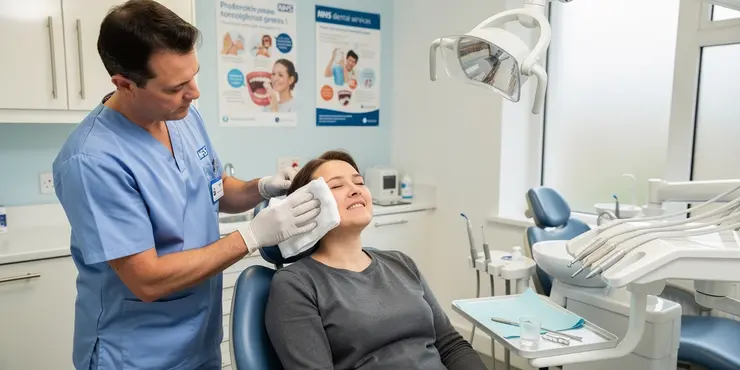
NHS 24 | Self-help tips for dental pain
Relevance: 100%
-
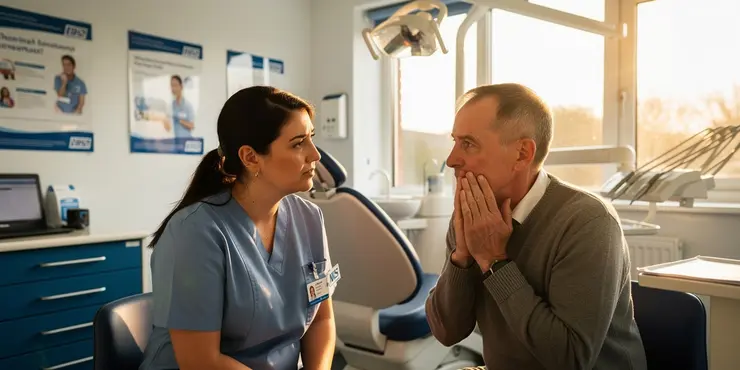
NHS 24 | How to get help for dental pain
Relevance: 98%
-
What if I need urgent dental care?
Relevance: 74%
-
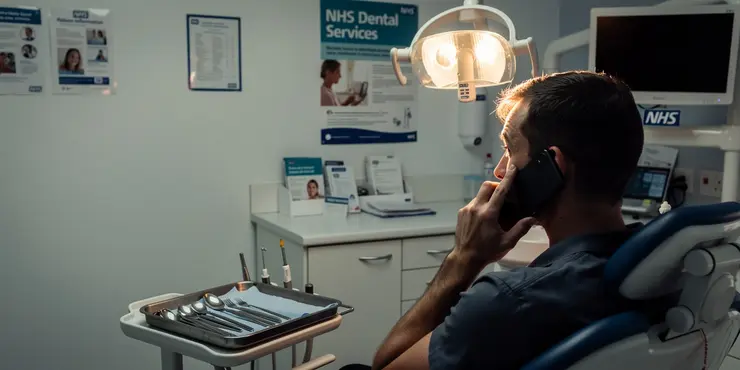
Can I get an emergency NHS dental appointment?
Relevance: 70%
-
Do I need to be a registered patient to get emergency NHS dental care?
Relevance: 65%
-
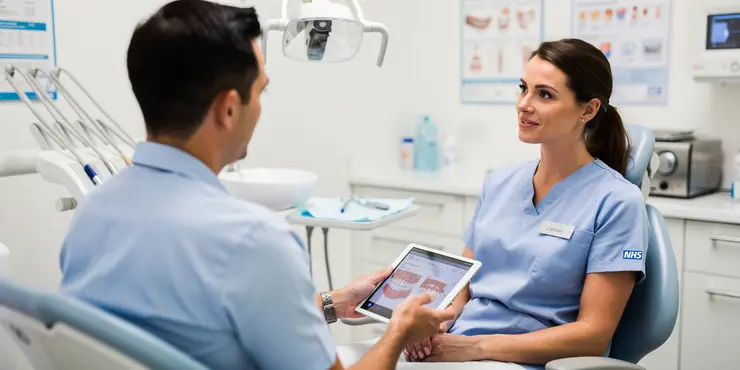
NHS Dental Charges Explained
Relevance: 65%
-
What treatments are covered by the NHS dental services?
Relevance: 65%
-
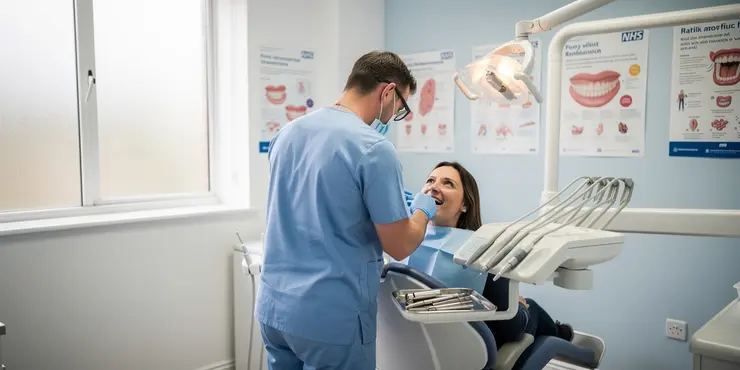
What treatments are covered by the NHS dental service?
Relevance: 65%
-
Are there waiting lists for NHS dental treatment?
Relevance: 61%
-
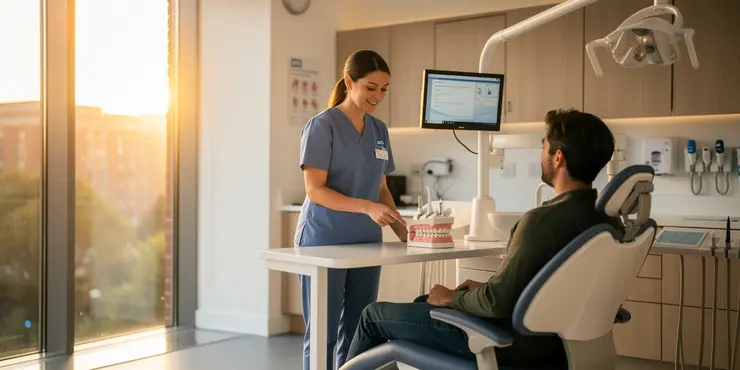
Can I get dental implants on the NHS?
Relevance: 61%
-
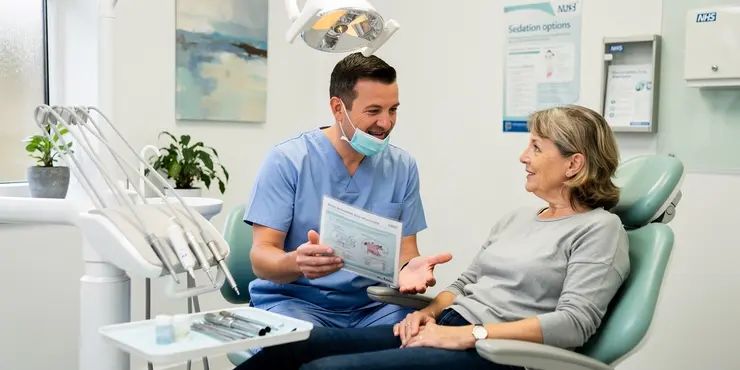
Is sedation available during NHS dental treatments?
Relevance: 61%
-
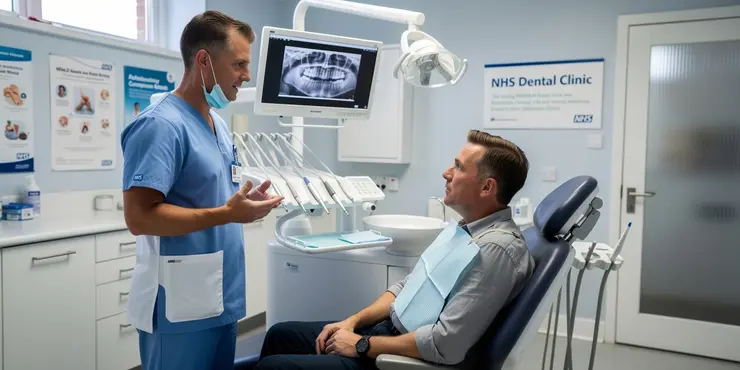
Are all dental appointments free on the NHS?
Relevance: 61%
-
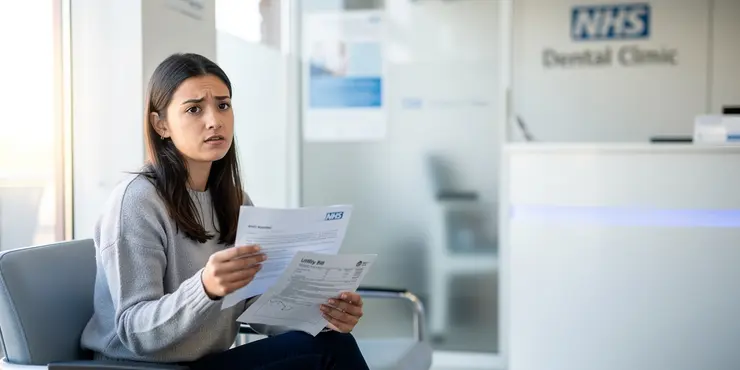
What should I bring to my NHS dental appointment?
Relevance: 60%
-
Is it safe to get dental work done in Turkey?
Relevance: 60%
-
Are NHS dental charges different across the UK?
Relevance: 60%
-
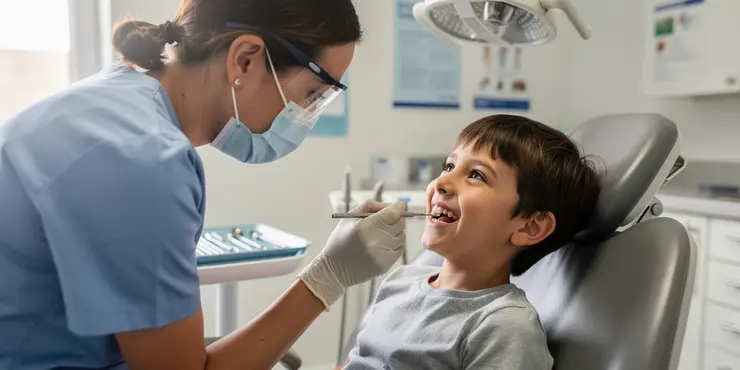
What is the role of dental sealants in preventing tooth decay?
Relevance: 60%
-
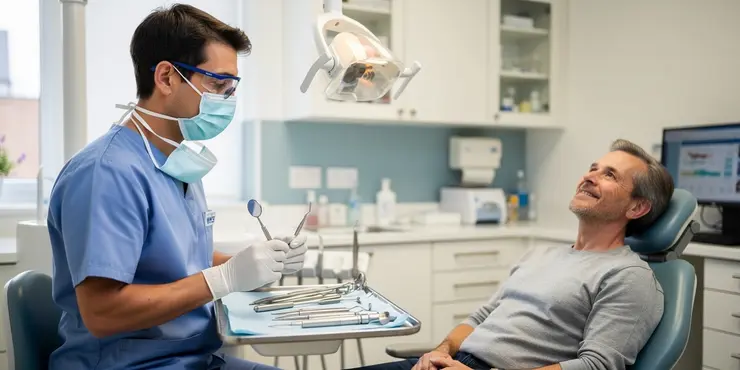
Are there any extra charges for NHS dental treatments?
Relevance: 59%
-
Can I get cosmetic dental treatment on the NHS?
Relevance: 59%
-
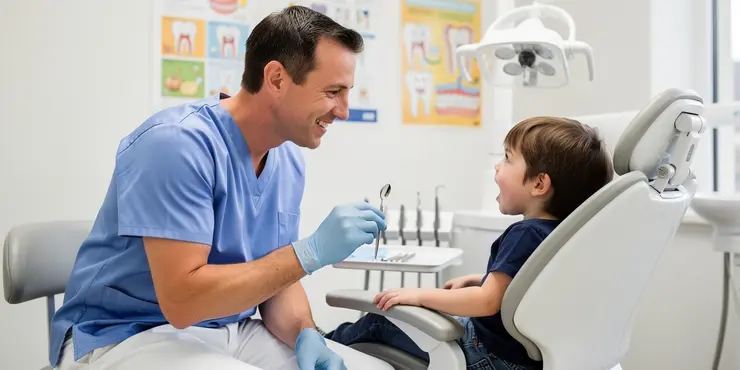
Dental Health: Tips for All Ages
Relevance: 59%
-
Can children get free NHS dental care?
Relevance: 58%
-
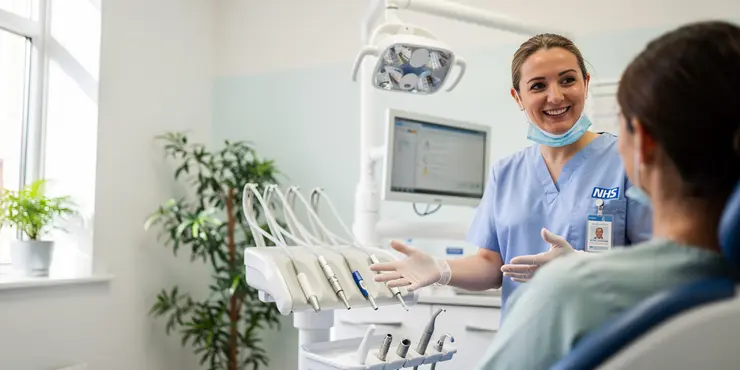
How often should I have a dental check-up on the NHS?
Relevance: 58%
-
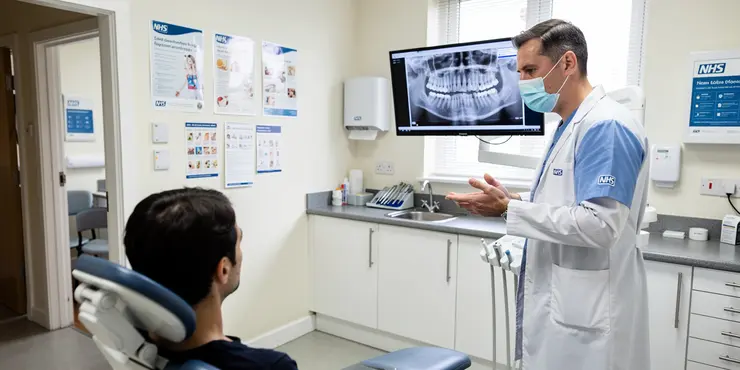
Will Brexit affect my access to NHS dental treatments?
Relevance: 58%
-
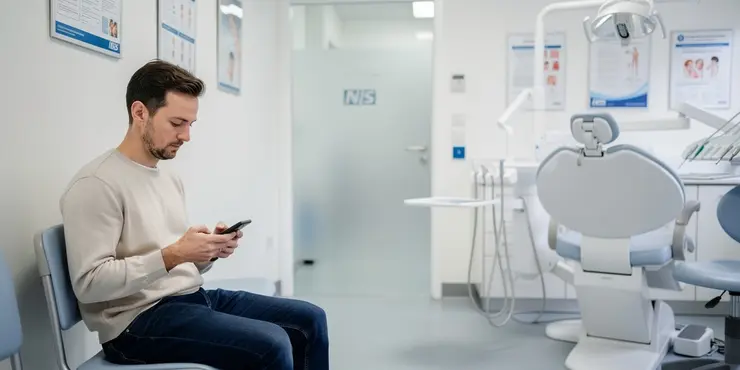
How long will I have to wait for an NHS dental appointment?
Relevance: 57%
-
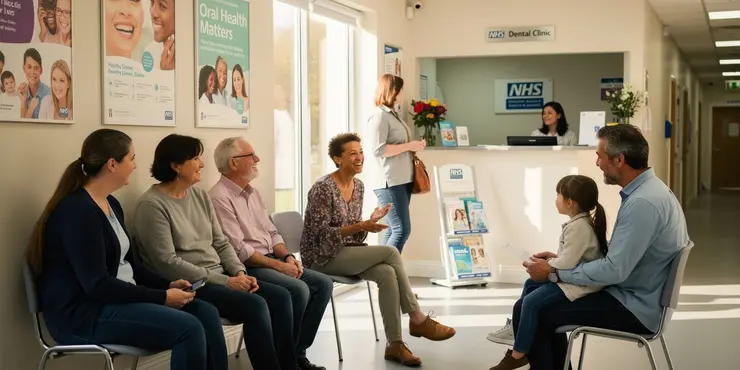
What happens if I miss my NHS dental appointment?
Relevance: 57%
-
How do I choose the right dental clinic in Turkey?
Relevance: 57%
-
What if I'm not satisfied with my NHS dental treatment?
Relevance: 57%
-
How much will I have to pay for NHS dental treatment?
Relevance: 57%
-
Can I use private dental services if I'm on the NHS list?
Relevance: 56%
-
What languages do NHS dental clinics typically support?
Relevance: 55%
-
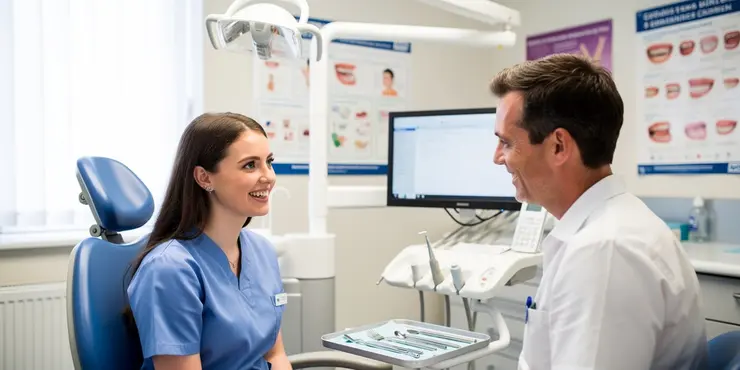
How do I know if I'm eligible for free NHS dental care?
Relevance: 54%
-
Can I get Turkey Teeth if I have existing dental issues?
Relevance: 53%
-
How can I provide feedback about my NHS dental care?
Relevance: 53%
-
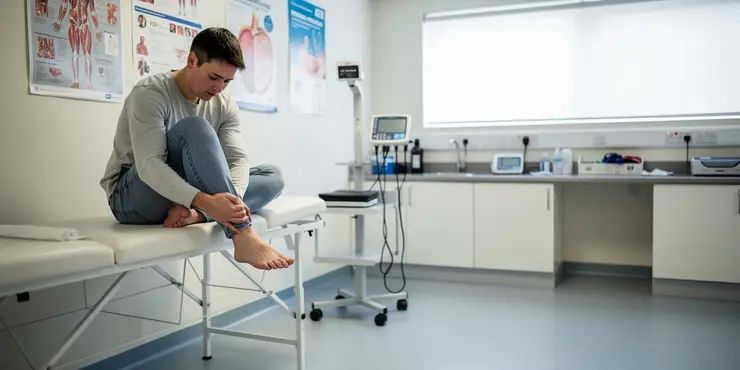
Foot Pain
Relevance: 51%
-
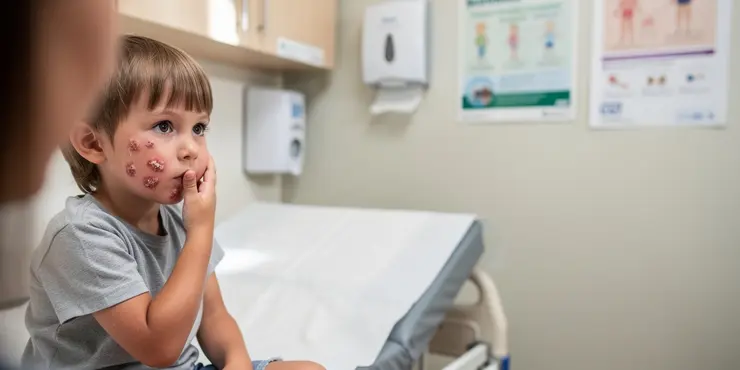
Is impetigo painful?
Relevance: 51%
-

Is a facelift painful?
Relevance: 51%
-
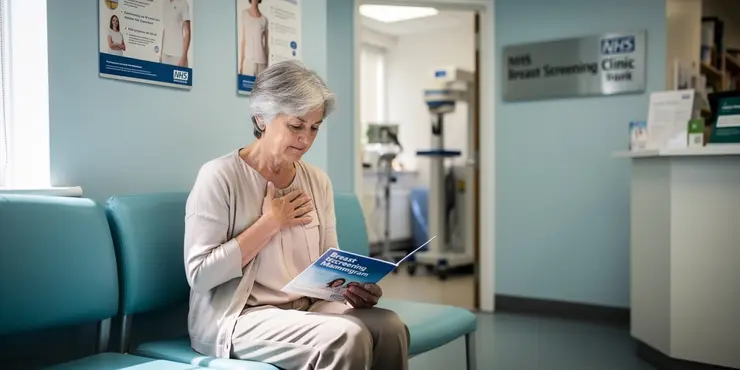
Is a mammogram painful?
Relevance: 50%
-
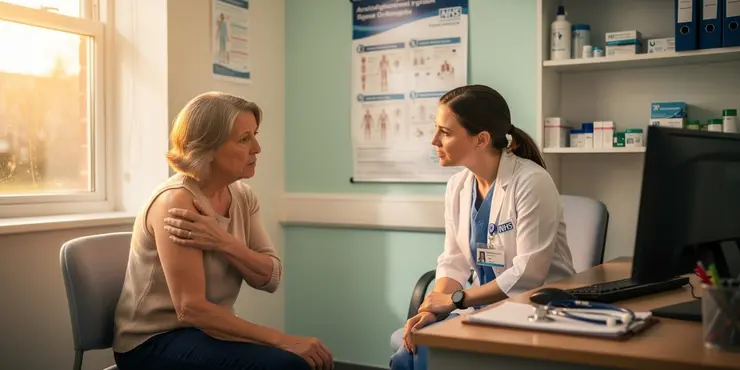
Shoulder pain | NHS
Relevance: 49%
-

Shoulder pain | NHS
Relevance: 48%
-
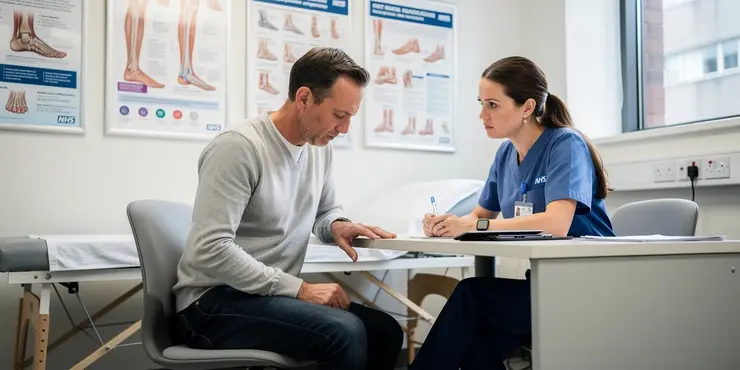
Heel pain | NHS
Relevance: 48%
-
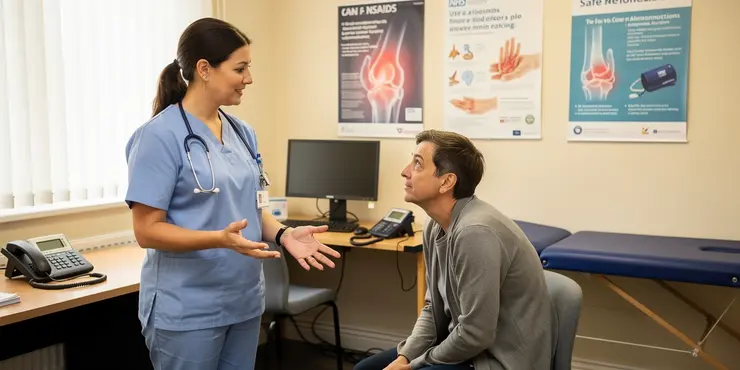
How do NSAIDs work to reduce pain?
Relevance: 48%
NHS 24 | How to Get Help for Dental Pain
Understanding NHS 24
NHS 24 is a 24-hour health service providing medical advice and information to residents in Scotland. For those in England, Wales, and Northern Ireland, there are equivalent services such as NHS 111. NHS 24 is designed to offer assistance and support when GP surgeries and dental practices are closed, ensuring that everyone has access to the healthcare they need at any time.
Contacting NHS 24 for Dental Pain
Dental pain can be extremely distressing and sometimes occurs outside regular dental practice hours. If you experience severe dental pain out of hours, you can contact NHS 24 by calling 111. The service will assess your situation and provide guidance on the best course of action, which may include locating an emergency dental clinic or receiving advice on managing the pain until you can see a dentist.
Types of Dental Emergencies
NHS 24 can assist with various dental emergencies, including:
- Severe toothache that does not improve with over-the-counter painkillers.
- Swelling of the gums, mouth, or face that is spreading.
- Uncontrolled bleeding following a dental procedure or trauma.
- Trauma to the teeth or jaw, such as broken or displaced teeth.
Self-Care Tips for Managing Dental Pain
While waiting to speak with NHS 24 or for an appointment with a dentist, there are some self-care measures you can try to relieve dental pain:
- Rinse your mouth with warm salt water to reduce swelling and clean the area.
- Use over-the-counter pain relief like paracetamol or ibuprofen, ensuring you follow the recommended dosage.
- Avoid very hot or cold foods and beverages, which can exacerbate the pain.
- Apply a cold compress to the outside of your cheek to reduce swelling and numb the pain.
Regular Dental Check-Ups
Preventing dental pain is always better than managing it. Regular dental check-ups can help identify potential issues before they become painful problems. Make sure to visit your dentist at least once yearly for an examination and cleaning. Good oral hygiene practices, such as brushing twice a day and flossing daily, are also vital in maintaining dental health.
NHS 24 | How to Get Help for Dental Pain
What is NHS 24?
NHS 24 is a health service that you can call anytime, day or night. It helps people in Scotland with health advice. If you live in England, Wales, or Northern Ireland, you can use NHS 111 for help. NHS 24 is there when the doctor's office or dentist is closed. It makes sure you can talk to someone about your health at any time.
How to Call NHS 24 for Tooth Pain
Tooth pain can hurt a lot and sometimes happens when the dentist is closed. If your tooth really hurts when the dentist is not open, you can call NHS 24 at 111. They will talk to you about your pain and help you decide what to do next. They might help you find a dentist or tell you how to take care of the pain until you can see one.
When is it a Dental Emergency?
You can call NHS 24 for help with:
- Toothache that does not get better with medicine from the pharmacy.
- Swelling in your gums, mouth, or face that gets bigger.
- Bleeding that does not stop after seeing a dentist or hurting your mouth.
- Teeth or jaw that are hurt or broken.
How to Help Your Tooth Pain at Home
While you wait to talk to NHS 24 or see the dentist, you can try these things:
- Rinse your mouth with warm salty water to make swelling go down and keep it clean.
- Take pain relief like paracetamol or ibuprofen, but follow the directions on the box.
- Stay away from very hot or cold foods and drinks, which might make the pain worse.
- Put a cold pack on your cheek where it hurts to help with swelling and pain.
Visit the Dentist Regularly
It is better to stop tooth pain before it starts. See your dentist every year for a check-up and cleaning. Brush your teeth twice a day and floss every day to keep your teeth and gums healthy.
Frequently Asked Questions
What should I do if I have a dental emergency?
If you have a dental emergency, such as severe pain, swelling, or trauma, contact your dentist immediately. If you cannot reach your dentist, call NHS 24 on 111 for advice.
What can I take for dental pain while waiting for an appointment?
You can take over-the-counter pain relievers like paracetamol or ibuprofen to manage dental pain. Always follow the instructions on the packaging and consult a pharmacist if you're unsure.
Can I use a cold compress for dental pain?
Yes, applying a cold compress to the outside of your cheek can help reduce dental pain and swelling.
Is it safe to use clove oil for toothache?
Clove oil can be used to temporarily relieve toothache. Apply a small amount to a cotton ball and place it on the affected area. However, it's best to consult your dentist for proper treatment.
When should I call NHS 24 for dental pain?
Call NHS 24 if you have severe dental pain, swelling, or signs of infection and cannot reach your dentist. NHS 24 can provide advice and direct you to emergency dental services if necessary.
How can I prevent dental pain?
Maintain good oral hygiene by brushing twice a day, flossing daily, and visiting your dentist regularly. Avoid sugary foods and drinks, and wear a mouthguard if you play contact sports.
What should I do if my child has dental pain?
If your child has dental pain, contact their dentist for advice. In the meantime, you can give them age-appropriate pain relievers and apply a cold compress to the affected area.
What can I do if my dental filling falls out?
If your dental filling falls out, contact your dentist as soon as possible. In the meantime, keep the area clean, avoid chewing on that side, and consider using temporary dental cement from a pharmacy.
Can a pharmacist help with dental pain?
Yes, a pharmacist can recommend over-the-counter pain relievers and other products to manage dental pain. They can also provide advice on when to see a dentist.
What should I do if I have a dental abscess?
A dental abscess is a serious condition that requires prompt treatment. Contact your dentist immediately. If you cannot reach your dentist, call NHS 24 on 111 for urgent advice.
Is it normal to have dental pain after a procedure?
Some pain and discomfort after dental procedures like fillings, extractions, or root canals are normal. However, if the pain persists or worsens, contact your dentist.
How can I manage wisdom tooth pain?
For wisdom tooth pain, take over-the-counter pain relievers, rinse with warm salt water, and apply a cold compress. Contact your dentist if the pain persists or if you experience swelling or infection.
What should I do if I break a tooth?
If you break a tooth, rinse your mouth with warm water and apply a cold compress to reduce swelling. Contact your dentist immediately for an appointment.
Can I use an antiseptic mouthwash for dental pain?
Yes, using an antiseptic mouthwash can help reduce inflammation and bacterial growth, which may alleviate some dental pain. However, it is not a substitute for professional dental care.
What are the signs of a dental infection?
Signs of a dental infection include severe pain, swelling, fever, a bad taste in the mouth, and pus around the affected tooth. If you suspect an infection, contact your dentist immediately.
What do I do if I have a tooth problem?
If you have a bad tooth problem, stay calm. You can try these steps:
- Ask an adult to help you.
- Call your dentist right away and tell them what's wrong.
- If your tooth hurts a lot, you can take a painkiller like the kind your doctor says is okay.
- If you have blood in your mouth, rinse it with clean water.
- If your tooth is broken or knocked out, save any pieces and take them to the dentist.
You can also use tools like reminder apps to never miss your dentist appointments.
If your tooth really hurts, is swollen, or if you hurt your mouth, call your dentist right away. If your dentist does not answer, phone NHS 24 at 111 for help.
It can help to have someone with you when you call. They can listen and take notes.
What can I do if my tooth hurts and I have to wait to see the dentist?
You can take medicine from the store, like paracetamol or ibuprofen, to help with tooth pain. Always read the instructions on the box and ask a pharmacist if you are not sure what to do.
Can I use something cold for tooth pain?
Yes, putting something cold on the outside of your cheek can help your tooth feel better and make any swelling go down.
Can I use clove oil for tooth pain?
If your tooth hurts, you can try using clove oil. It might help the pain feel better. But you should talk to a grown-up, like a parent or a dentist, before using it. They can help make sure it is safe for you. You can also use a soft toothbrush and rinse your mouth with warm salt water to help.
Clove oil can help when your tooth hurts. Put a little bit on a cotton ball. Then, gently put it where your tooth hurts. But, you should also go see your dentist. They can help you fix the problem.
When should I call NHS 24 for tooth pain?
You should call NHS 24 if your tooth hurts very bad and you cannot wait to see a dentist.
Here are some tips:
- If your tooth is very sore and it does not get better, you can call NHS 24.
- Call them if your mouth or face is swollen.
- You should also call if you have a high fever with tooth pain.
You can use these tools to help:
- Ask someone you trust to help you call.
- Write down your symptoms before you call.
NHS 24 is there to help you when it is urgent.
If you have a bad toothache, a swollen mouth, or think you might have an infection, call NHS 24. They can help you if you can't talk to your dentist. NHS 24 will give you advice and tell you where to get emergency dental help if you need it.
How can I stop tooth pain?
Here are some simple ways to keep your teeth from hurting:
- Brush your teeth twice every day.
- Use toothpaste that has fluoride in it.
- Floss your teeth once a day to clean between them.
- Avoid sugary foods and drinks.
- Visit the dentist for check-ups twice a year.
- If something still hurts, tell a grown-up and see a dentist.
These tips can help keep your teeth healthy and stop pain.
Keep your teeth and mouth healthy by brushing your teeth two times every day. Use floss to clean between your teeth every day too. Go to the dentist for check-ups, even if your teeth don't hurt.
Try not to eat or drink too many sweet things. If you play sports where you might get hit in the face, wear a special mouthguard to protect your teeth.
What to do if your child's teeth hurt
If your child's teeth hurt, you can help. Here are some simple steps:
- Stay Calm: It is important to look calm so your child feels safe.
- Ask About the Pain: Talk to your child to find out where it hurts.
- Use Pain Relief: You can give them pain medicine for children. Follow the instructions on the package.
- Cool the Area: Put a cold cloth on your child's face where it hurts.
- Rinse Mouth: Have your child rinse their mouth with warm water.
- Check the Teeth: Look for anything stuck in their teeth and gently remove it.
- Call the Dentist: Make an appointment with your child's dentist as soon as you can.
Tools that can help:
- Pain medicine for kids (like children's ibuprofen or acetaminophen)
- A soft cold cloth
- A glass of warm water for rinsing
If your child has a toothache, call their dentist for help. While you wait, you can give them medicine for pain that is safe for their age, and put something cold on the sore spot.
What to Do if Your Tooth Filling Falls Out?
If your tooth filling comes out, don't worry. Here are some simple steps:
- Keep the piece if you find it. Show the dentist.
- Rinse your mouth with warm water to keep it clean.
- Chew food on the other side of your mouth to protect the tooth.
- Call the dentist to get an appointment. Tell them what happened.
- If it hurts, tell an adult. They can help with medicine to feel better.
Use a mirror to look in your mouth. This can help you see the tooth. Remember, dentists help fix teeth. They will make it better.
If your tooth filling falls out, call your dentist quickly. While you wait, keep your mouth clean. Don’t chew on that side of your mouth. You can use special dental glue from the pharmacy to cover the hole for now.
Can a pharmacist help with tooth pain?
Yes, a pharmacist can help if you have a toothache. They can give you medicine to stop the pain.
Here are some things you can try:
- Ask the pharmacist for pain medicine.
- Use a cold pack on your cheek where it hurts.
- Remember to brush your teeth gently.
If the pain doesn’t get better, you should see a dentist.
Yes, a pharmacist can help you choose pain medicine you can buy without a prescription to help with tooth pain. They can also tell you when you should visit a dentist.
What can I do if I have a tooth infection?
If your tooth hurts a lot, it might be an infection. Here’s what you can do:
- Go see a dentist. They can help make it better.
- If it hurts a lot, you can take medicine like paracetamol to help with the pain.
- Put a cold cloth on your cheek. This can help if it's swollen.
- If you can't see a dentist right away, call a health line. They can give you advice.
Remember, only a dentist can fix a tooth infection, so it's important to see one.
A dental abscess is a bad tooth problem. You need to see a dentist quickly. Call your dentist right away. If your dentist is not available, you can call NHS 24 at 111 for help.
Is it normal for your teeth to hurt after going to the dentist?
It's normal for your teeth to hurt a little after the dentist fixes them. This can happen when you get a filling, take a tooth out, or get a root canal. But if the pain doesn't stop or gets worse, talk to your dentist.
How can I take care of wisdom tooth pain?
If your wisdom teeth hurt, you can do these things to feel better:
- Take medicine you buy from the store for pain.
- Rinse your mouth with warm salty water.
- Put something cold, like a pack of ice, on your face where it hurts.
If it still hurts a lot, or if your face gets puffy or there is an infection, tell your dentist.
What should I do if I break a tooth?
If you break a tooth, stay calm. Here are some simple steps to help:
- Rinse your mouth with warm water.
- If there's bleeding, gently press a cloth to the area.
- If your tooth hurts, put a cold cloth on your cheek.
- Call a dentist to make an appointment.
Tools like a phone reminder or asking an adult for help can support you.
If you break a tooth, rinse your mouth with warm water. Use something cold like ice on your face to make the swelling go down. Call your dentist right away to get an appointment.
Can I use a mouthwash if I have a toothache?
If your teeth hurt, using a mouthwash might help. Some mouthwashes can keep your mouth clean and stop it from getting worse. But, it's still a good idea to see the dentist.
Here are some tools and techniques that might help:
- Ask a grown-up to help you read the labels on the mouthwash bottle.
- Look for mouthwashes that say they help with pain or germs.
- If you are not sure, always ask the dentist what is best for you.
Yes, using a mouthwash that kills germs can help with swelling and stop bad germs from growing. This might help with some tooth pain. But, you still need to see a dentist for proper care.
What are the signs of a tooth infection?
Here are some signs that you might have a tooth infection:
- Your tooth hurts a lot.
- Your gum is red and swollen.
- Your tooth feels wobbly.
- Your face feels puffy around your mouth.
- You have a bad taste in your mouth.
- You have a fever.
If you think you have a tooth infection, it is important to see a dentist. They can help you feel better. Drawing pictures or using simple words can help you explain how you feel. A dentist can use these tools to understand more clearly.
If your tooth has an infection, you might feel a lot of pain. Your face might get swollen. You could have a fever, which means your body feels very hot. Your mouth might taste bad. You could see yellow or white stuff, called pus, near the tooth. If you think your tooth is infected, tell your dentist right away.
Useful Links
This website offers general information and is not a substitute for professional advice.
Always seek guidance from qualified professionals.
If you have any medical concerns or need urgent help, contact a healthcare professional or emergency services immediately.
Some of this content was generated with AI assistance. We’ve done our best to keep it accurate, helpful, and human-friendly.
- Ergsy carfully checks the information in the videos we provide here.
- Videos shown by Youtube after a video has completed, have NOT been reviewed by ERGSY.
- To view, click the arrow in centre of video.
- Most of the videos you find here will have subtitles and/or closed captions available.
- You may need to turn these on, and choose your preferred language.
- Go to the video you'd like to watch.
- If closed captions (CC) are available, settings will be visible on the bottom right of the video player.
- To turn on Captions, click settings .
- To turn off Captions, click settings again.
More Items From Ergsy search
-

NHS 24 | Self-help tips for dental pain
Relevance: 100%
-

NHS 24 | How to get help for dental pain
Relevance: 98%
-
What if I need urgent dental care?
Relevance: 74%
-

Can I get an emergency NHS dental appointment?
Relevance: 70%
-
Do I need to be a registered patient to get emergency NHS dental care?
Relevance: 65%
-

NHS Dental Charges Explained
Relevance: 65%
-
What treatments are covered by the NHS dental services?
Relevance: 65%
-

What treatments are covered by the NHS dental service?
Relevance: 65%
-
Are there waiting lists for NHS dental treatment?
Relevance: 61%
-

Can I get dental implants on the NHS?
Relevance: 61%
-

Is sedation available during NHS dental treatments?
Relevance: 61%
-

Are all dental appointments free on the NHS?
Relevance: 61%
-

What should I bring to my NHS dental appointment?
Relevance: 60%
-
Is it safe to get dental work done in Turkey?
Relevance: 60%
-
Are NHS dental charges different across the UK?
Relevance: 60%
-

What is the role of dental sealants in preventing tooth decay?
Relevance: 60%
-

Are there any extra charges for NHS dental treatments?
Relevance: 59%
-
Can I get cosmetic dental treatment on the NHS?
Relevance: 59%
-

Dental Health: Tips for All Ages
Relevance: 59%
-
Can children get free NHS dental care?
Relevance: 58%
-

How often should I have a dental check-up on the NHS?
Relevance: 58%
-

Will Brexit affect my access to NHS dental treatments?
Relevance: 58%
-

How long will I have to wait for an NHS dental appointment?
Relevance: 57%
-

What happens if I miss my NHS dental appointment?
Relevance: 57%
-
How do I choose the right dental clinic in Turkey?
Relevance: 57%
-
What if I'm not satisfied with my NHS dental treatment?
Relevance: 57%
-
How much will I have to pay for NHS dental treatment?
Relevance: 57%
-
Can I use private dental services if I'm on the NHS list?
Relevance: 56%
-
What languages do NHS dental clinics typically support?
Relevance: 55%
-

How do I know if I'm eligible for free NHS dental care?
Relevance: 54%
-
Can I get Turkey Teeth if I have existing dental issues?
Relevance: 53%
-
How can I provide feedback about my NHS dental care?
Relevance: 53%
-

Foot Pain
Relevance: 51%
-

Is impetigo painful?
Relevance: 51%
-

Is a facelift painful?
Relevance: 51%
-

Is a mammogram painful?
Relevance: 50%
-

Shoulder pain | NHS
Relevance: 49%
-

Shoulder pain | NHS
Relevance: 48%
-

Heel pain | NHS
Relevance: 48%
-

How do NSAIDs work to reduce pain?
Relevance: 48%


